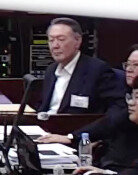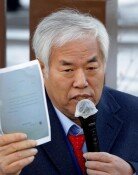[Op-Ed] Judges and Real-life Experience
[Op-Ed] Judges and Real-life Experience
Posted February. 05, 2010 09:13,
U.S. federal judge Edward Devitt issued 10 commandments for new judges in 1979, including respecting common sense in addition to exercising kindness and patience. The virtues are hard to implement without abundant experience and self-discipline. A senior lawyer in Korea is said to have always told new judges to learn from the experiences of veteran judges and never to look down on those in insignificant positions. The U.S. tends to appoint former prosecutors and lawyers as judges, while Japan requires being an assistant judge for 10 years before formal appointment as a judge. The two countries show their high consideration for judicial experience when appointing judges.
Last year, Koreas 92 new judges had an average age of 28.8. The average age was 29.7 in 2005 but has since fallen as more women have been appointed. Around 43 percent of the new judges were under 27 and five under 25. The new judges fully devoted themselves to the state judicial exam at university and completed a two-year training course at the Judicial Research and Training Center with honors. Most of them were appointed judges with no experience, however, with the exception of those who had served as military lawyers.
The recent acquittals of a lawmaker who committed vandalism in the National Assembly and a TV news program that distorted facts on mad cow disease have fanned controversy over the lack of experience and quality of Korean judges. Some say with good reason that appointing judges based on test scores often leads to rulings the public finds hard to accept or violates common sense. Such rulings make people believe judges lack sufficient understanding of society.
One argument says judges with more experience and understanding of the world are less likely to make mistakes or turn arrogant or self-righteous. Yet Korea must remember the lesson from the failed reserve judge system implemented from 1998 to 2007. The system was scrapped because of a short supply of new judges, but another reason was complaints from junior judges about their status in comparison with prosecutors who passed the same judicial exam. In addition, the top graduates of the Judicial Research and Training Center tend to work for law firms rather than sit on the bench.
Editorial Writer Kwon Sun-taek (maypole@donga.com)



![[속보]국힘 윤리위, 한동훈 제명 결정…장동혁호 ‘뺄셈 정치’ 가나](https://dimg.donga.com/c/138/175/90/1/wps/NEWS/IMAGE/2026/01/14/133151701.1.jpg)



